IMAGINARY (2024)
A woman returns to her childhood home to discover that the imaginary friend she left behind is very real and unhappy that she abandoned him.

A woman returns to her childhood home to discover that the imaginary friend she left behind is very real and unhappy that she abandoned him.


Everyone had an imaginary friend. These friends would console you when you were sad, play with you when you were lonely, and give you advice when you were stuck in a quandary. But did you know that imaginary friends are actually said to be demonic entities from another dimension, feeding off the creativity of your childhood mind? Yeah, me neither…
Jessica (DeWanda Wise) moves back to her old home with her new family: her beloved husband, Max (Tom Payne), and her two stepdaughters, Alice (Pyper Braun) and Taylor (Taegen Burns). However, when Jessica discovers that Alice is playing with Chauncey, the same stuffed bear she had as a child, troubling aspects of her past resurface. Now, the things she wanted to forget have come back to haunt her—literally.
Imaginary isn’t as bad as some of Blumhouse Productions’ recent offerings. In fact, there are moments when it’s actually quite enjoyable, although this might be the effect of seeing it on the big screen—jump scares don’t work quite as well on your television. Suffice to say, as effective jump scares are largely the film’s most commendable aspect, it’s far from a success, despite being occasionally entertaining. With poor dialogue, weak attempts at suspense, and an over-reliance on genre clichés, Imaginary ironically suffers from a dearth of imagination.
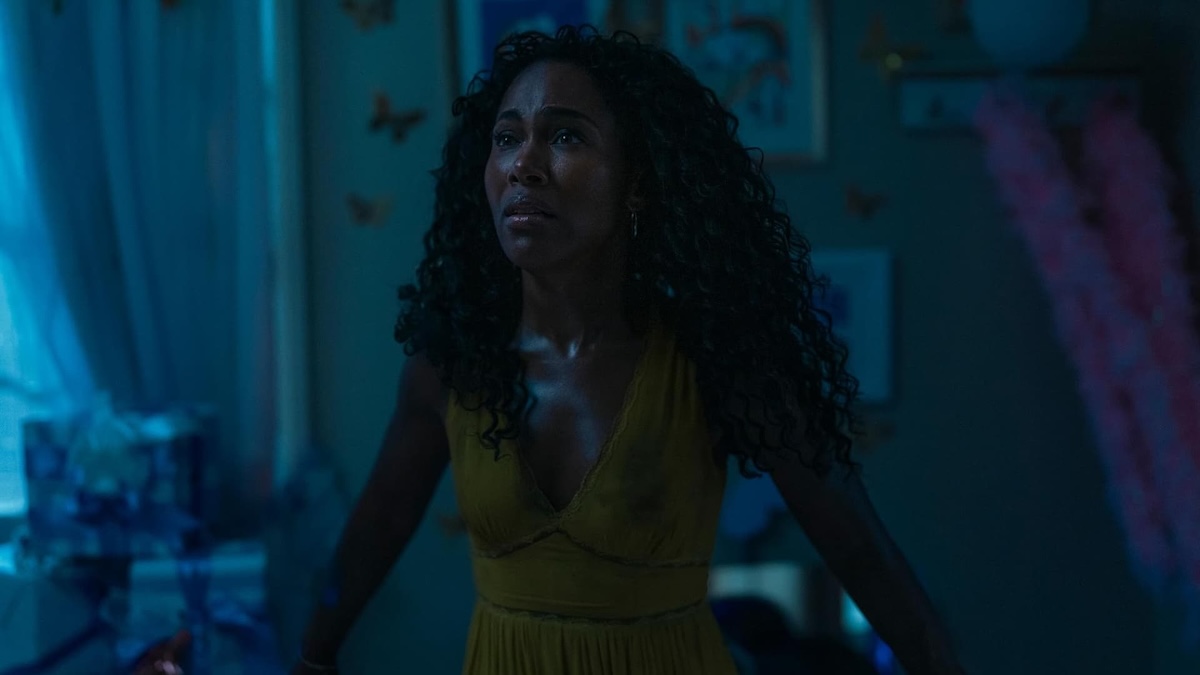
The lack of innovation in the horror genre is first evident in the tired old setup. The opening sequence hints at the presence of supernatural malevolence, but despite attempting to keep you on the edge of your seat from the outset, it fails to deliver any scares. We then jump to meet Jessica and her family as they move into a new house, which, we’re led to believe, is the same building from the opening sequence. This opening is essentially identical to that of Blumhouse’s recent Night Swim (2024).
The trope of old ghosts inhabiting a new house has become so tired that one wonders when it will finally be laid to rest. The haunted house is certainly a genre staple, but such a mundane approach to the subject only induces apathy in the audience. If the filmmaker merely recycles plot points from better horror films, without adding their own original execution, viewers will understandably dismiss it as rubbish.
And there is very little originality in the opening of Imaginary, either in its design or execution. It seems as though writer-director Jeff Wadlow (Kick-Ass 2) is content for the story to plod along in a one-dimensional way; fortunately, it kicks into gear later on, with the middle section glimmering with a touch of creativity and the occasional plot development that you may not have anticipated. In this respect, it is simply a shame that the beginning engenders such indifference in the audience early on—by the midpoint, it’s difficult for us to forgive the rather humdrum opening we’ve been forced to sit through.
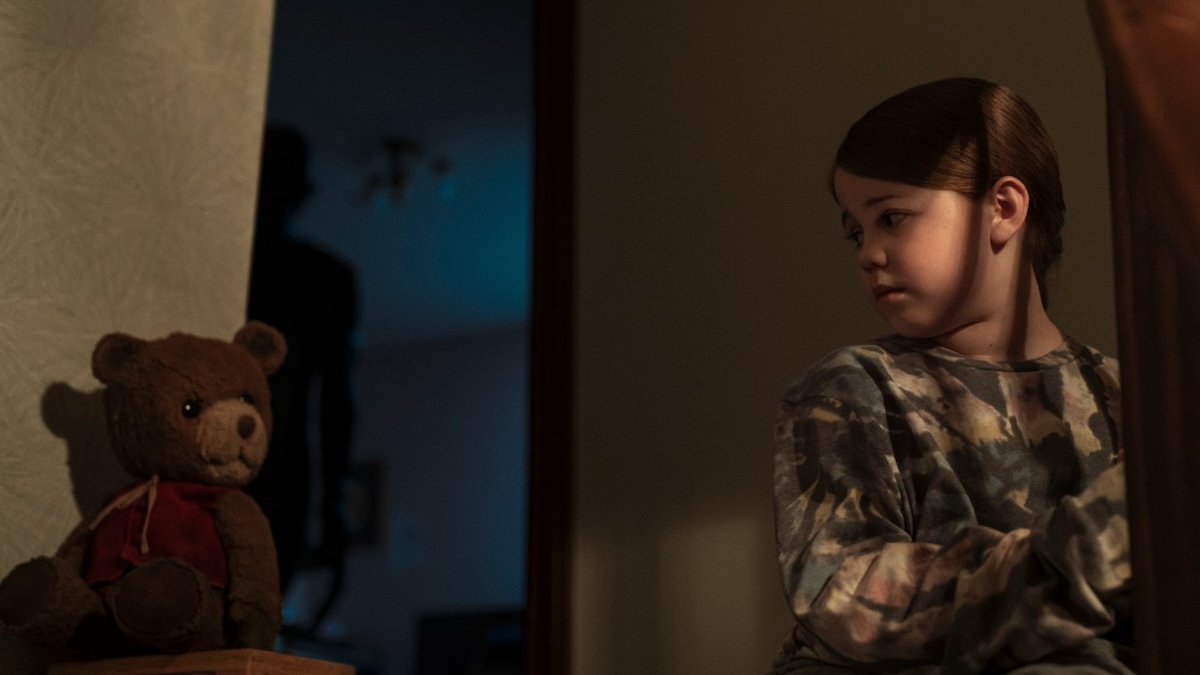
While the archetypal characters are familiar, the compelling performances manage to bolster the plot during its weaker moments. DeWanda Wise and Taegen Burns both fulfil the roles of misunderstood stepmother and curmudgeonly stepdaughter without ever overdoing it. The plot benefits from Tom Payne’s absence—Max is forced to leave home for work—as we are allowed to see the girls and Wise grow closer under their increasing duress.
Easily the most commendable performance is that of Pyper Braun, who manages the rare feat of being the frightened child in a horror film without being excruciatingly irritating. Instead, Braun’s performance has a surprising depth of feeling and excels in conveying moments of great internal turmoil. If nothing else, Imaginary suggests that Braun has a promising career ahead of her. Her character does make the kind of implausible decisions that horror films often demand, but after all, she didn’t write the screenplay—why are nine-year-olds so drawn to dark, spooky basements in the movies?
As a middling work, it’s helpful to identify what largely kept me entertained: the jump scares. I’m not usually a fan of jump scares, not because they unsettle me greatly, but because I consider them to be lazy writing. However, there are a couple of genuinely clever frights in this film, particularly because they’re unexpected.
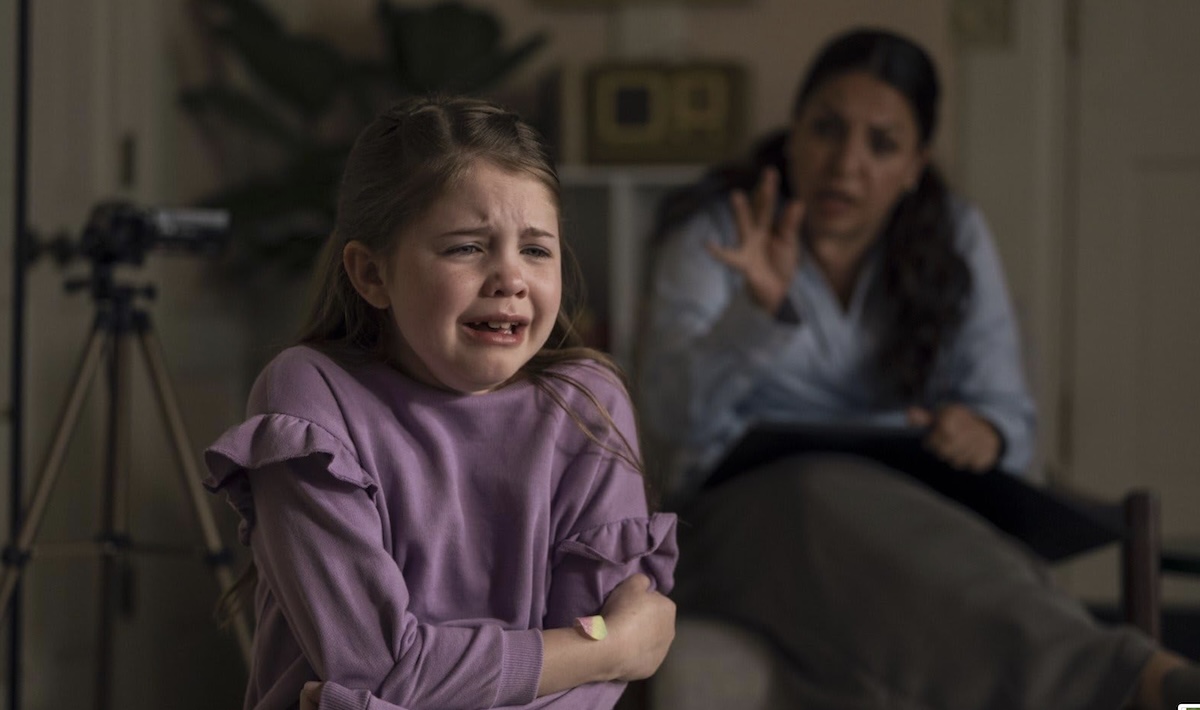
Perhaps some of the dissatisfaction I’ve experienced with jump scares in recent years is how predictable they’ve become. Filmmakers like Mike Flanagan now seem utterly reliant on them to deliver thrills. While his first feature, Oculus (2013)—also a Blumhouse production—was brimming with suspense and a couple of well-timed frights, his later work with Netflix, such as The Haunting of Bly Manor (2020) and The Fall of the House of Usher (2023), have been so dependent on the fleeting rush of the jump scare that the rest of these stories become tedious.
That’s not to say that Imaginary does a better job of creating suspense or a sustained sense of dread. In fact, when Wadlow attempts to create prolonged terror in his audience, the result is, unfortunately, risible. Chauncey furrowing his teddy bear brow in rage is simply ridiculous. Similarly, Alice acting as the medium for Chauncey becomes rather comical; it’s not so much the unconvincing ventriloquism, but her conveyance of Chauncey’s malevolent threats in his demonic broken English. Do you mean to tell me that a spirit can bridge dimensions, conjure anything that exists in the imagination, but it can’t conjugate a few verbs? An unlikely tale, indeed…
There are similar moments that elicit chuckles rather than screams, some egregious enough to make you question the director’s intention. Alice, standing forebodingly in a doorway, introduced with a quick cut and a chilling, discordant violin note, doesn’t quite establish a lasting sense of eeriness. Additionally, the large, amorphous figure that constantly stands behind Jessica throughout the film becomes tedious due to its inaction and overuse, although it will likely be successful in unnerving younger viewers.
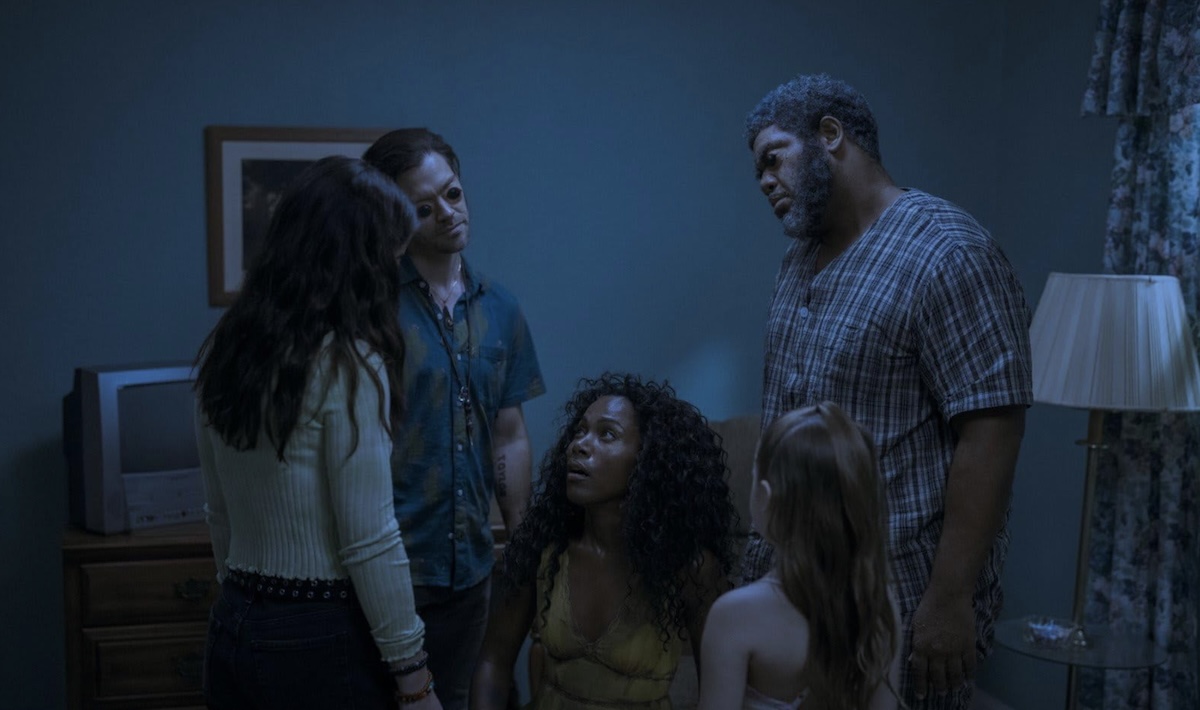
Perhaps the most distracting element was the instances of bad dialogue. Attempts at humour undermined moments where the director arguably should have tried to build tension or a sense of jeopardy. Meanwhile, clumsy, overwrought exposition serves to illuminate points which probably could have been left unexplained.
However, it’s clear that Wadlow is more intent on creating an engaging horror film for teenagers (which he arguably achieves) rather than recreating the thrills, chills, and sinister mystery of The Changeling (1980).
Overall, Imaginary falls right in line with what we’ve come to expect from Blumhouse Productions. It has a few fun moments, a largely trite script, and capable performances to keep it all afloat. Truthfully, I like their production model: films need not be as expensive as they are fast becoming, especially because this never guarantees originality in terms of story. Whereas Apple has released three films in the last year with budgets over £200M, Imaginary, Night Swim, and Five Nights at Freddy’s (2023) were collectively made for less than £50M.
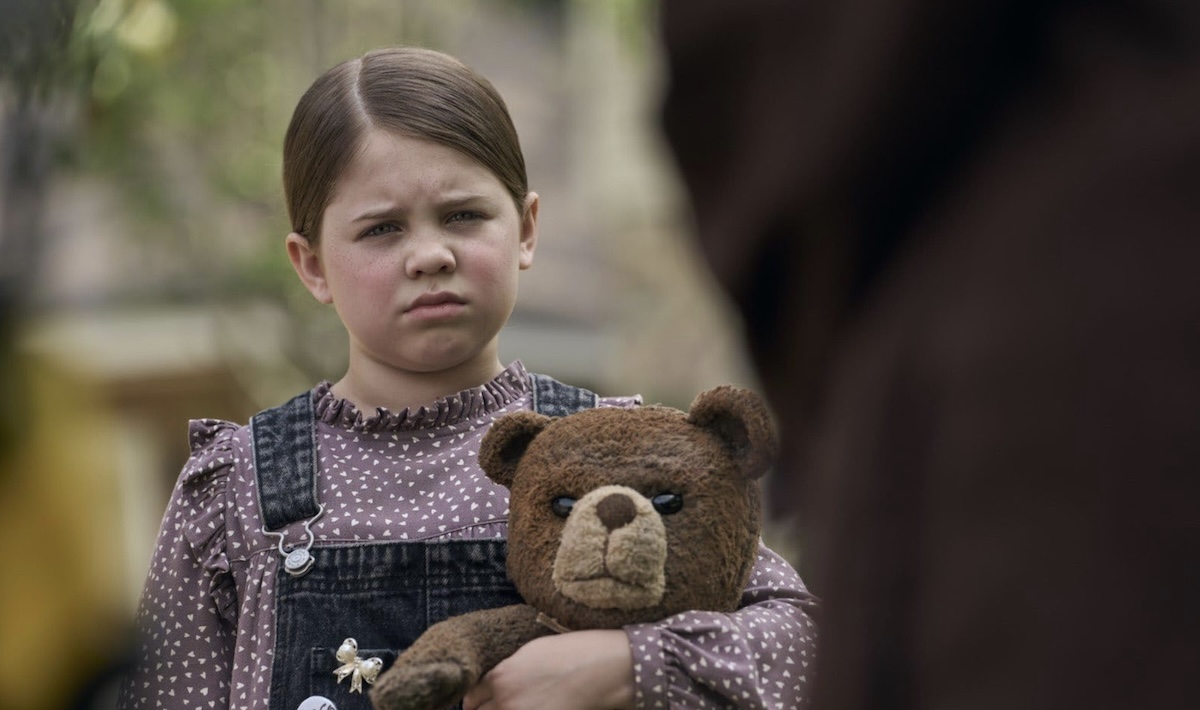
I don’t mean to say these films were great. Night Swim and Five Nights at Freddy’s were both uninspired, insipid messes. However, I’ve really enjoyed some of Blumhouse Productions’ films, including the suspenseful The Gift (2015), the surprisingly unsettling Sinister (2012), the intelligent The Invisible Man (2020), and the aforementioned Oculus. Not to mention the compelling dramas they’ve produced in Whiplash (2014) and BlacKkKlansman (2018), or their collaborations with Jordan Peele.
However, when they continue to make projects as deplorable as Truth or Dare (2018) and Five Nights at Freddy’s, you can never be certain what you’re going to get. Such was my apprehension going into Imaginary. While I wouldn’t go so far as to call Wadlow’s effort a mess, it certainly suffers from both pacing and structural problems. It also relies a little too heavily on some of horror’s most worn clichés, and as a result, earns the audience’s detachment.
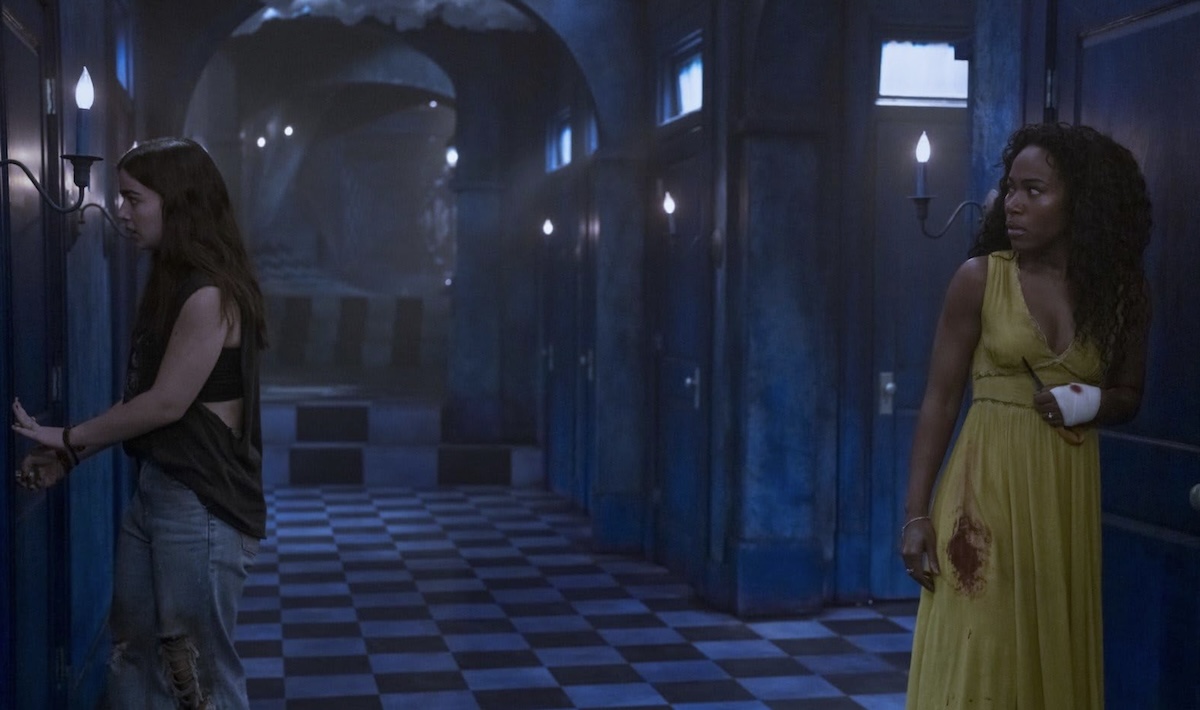
Having said all this, I still enjoyed the film. Imaginary never tries to be anything more than what it is, which is a relief. Night Swim largely suffered from a poorly handled family drama shoehorned into a horror story, whilst also trying to be a poignant treatise on our deepest desires.
Wadlow steers clear of that. While attempts are made to evoke emotion (largely stemming from Jessica’s backstory and relationship with her father), they never become the central focus of the plot. Instead, it’s another example of diverting horror, lacking in substantial depth.
Although the film won’t have you on the edge of your seat, neither will it allow you to fully relax. It probably won’t stop you from buying a stuffed teddy bear for your nephew, though it might make you reconsider naming him Chauncey. But then again, what sort of name is that for a bear anyway?
USA | 2024 | 104 MINUTES | 2.35:1 | COLOUR | ENGLISH

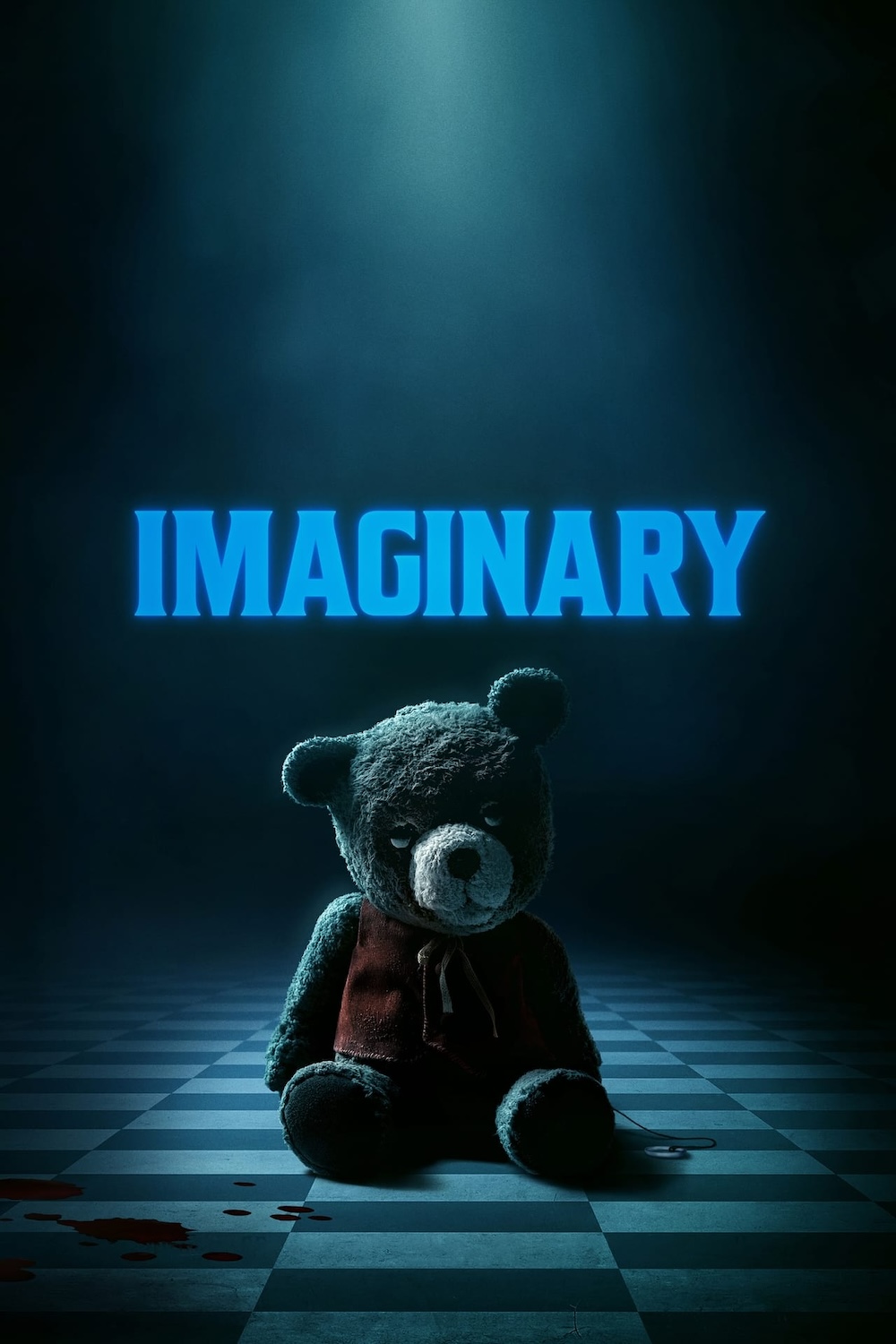
director: Jeff Wadlow.
writers: Jeff Wadlow, Greg Erb & Jason Oremland.
starring: DeWanda Wise, Tom Payne, Taegen Burns, Pyper Braun, Veronica Falcón & Betty Buckley.
